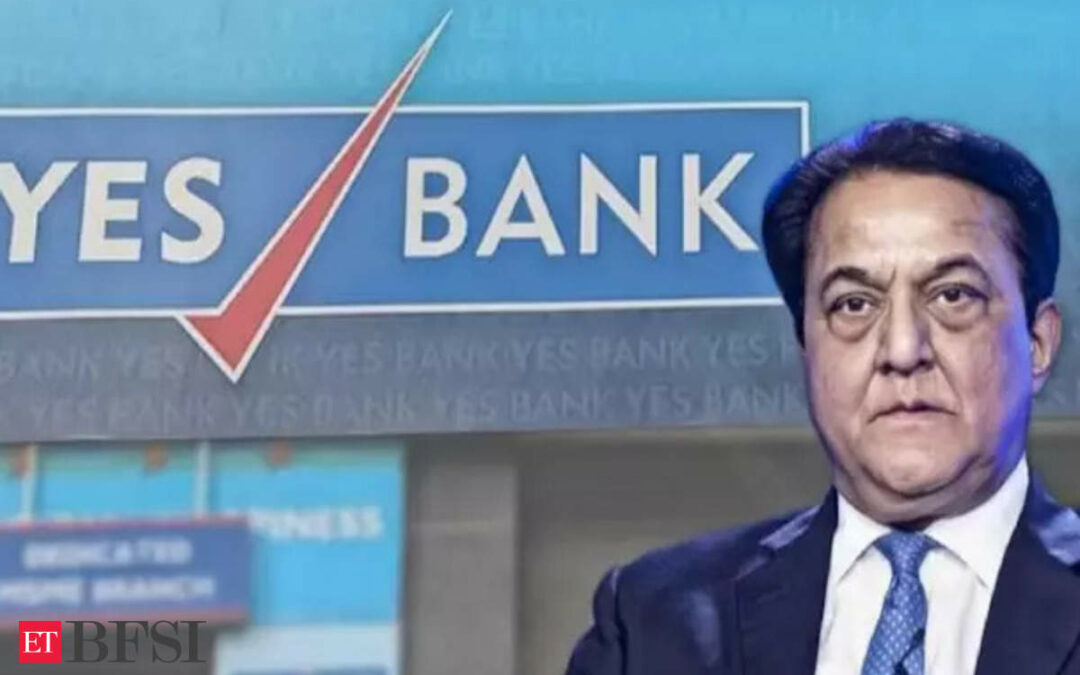On Friday, Yes Bank co-founder Rana Kapoor walked out of Taloja Central Prison after over four years of undertrial incarceration. Special trial judge M G Deshpande of a sessions court granted him bail in the Avantha case on executing a personal bond of Rs 2 lakh, along with other conditions. the last of the eight cases he was booked under. Other courts had granted him bail in the other seven cases so far. Kapoor was first arrested on March 7, 2020, in an alleged money laundering case.
The case was registered against him by the Central Bureau of Investigation in connection with allegations that he took a lavish bungalow on New Delhi’s Amrita Shergil Marg for much less its market price as “bribe” in lieu of extending concessions, relaxations and waivers in the existing credit facilities given to the real estate group by Yes Bank, the CBI had alleged. The CBI had claimed that there was misappropriation of the loan amount to the tune of Rs 400 crore.
In my opinion Mr. kapoor was entitled to relief under section 436 A of crpc and deserved to be released on bail as the section contemplates that a under trial prisoner has the right seek bail on serving more than half of the maximum possible sentence prescribed for the offence, which was the case for Mr. kapoor as he was in jail for almost four years and the trial is still not expected to commence any soon.Vikrant Rana, Advocate, Delhi High Court
He added that, Related party transaction are themselves legal but they may create other illegal situation as in this case the transaction that took place in this case favoured kapoors wife’s company who comes under the ambit of related party though establishing quid pro quo in such cases requires a thorough examination of the transaction details supported by robust evidence.He furthers states that the authorities would need to prove that the acquisition of the property was indeed a bribe i.e., “illegal gratification” for the concessions granted by yes bank. Thus, this would involve demonstrating that there was a direct correlation between the property transaction and the banks action proving a quid pro quo requires demonstrating a direct exchange of benefits, what seems suspicious in one case may be standard practise in another. Thus, there is lack of explicit evidence in such transactions as the conversations might occur informally or without written records courts rely on circumstantial evidence which can be less conclusive.The CBI alleged that Kapoor, then managing director and chief executive officer of Yes Bank, had obtained “illegal gratification” in the form of a property located at a prime location in Delhi at a price much less than its market value for sanctioning a loan. The property belongs to Avantha Realty.
The bail granted is in accordance with Article 21, as the continued imprisonment would violate his fundamental right to life and personal liberty.Udit Chauhan, Advocate, Delhi High Court
He adds that that the court has ordered a personal bond of Rs. 3 Lakhs from him solely to ensure his appearance as the court aims to treat similarly situated accused equally on the basis of principle of parity.
He further adds that, the supreme court in several cases has reiterated that detention without trial would amount to pre trial conviction. Thus, it is pertinent to note that he is no longer associated with Yes Bank and has no access to its records, eliminating any apprehension of tampering with them on which grounds the bail was granted by the special court.
CBI registered the case in March 2020 against Rana Kapoor, his wife Bindu, Avantha Group promoter and industrialist Gautam Thapar, Bliss Abode Pvt Ltd, and others, alleging that Kapoor misused his official position as the then CEO of Yes Bank, and acquired a prime property at Delhi’s upscale Amrita Shergil Marg, belonging to a mortgage with Yes Bank, at a lesser price than its market value.
Advocate Rahul Agarwal, appearing for Rana Kapoor, said Kapoor walked out of Taloja jail, where he had been lodged at around 7pm after completion of the release formalities. CBI registered the case in March 2020 against Rana Kapoor, his wife Bindu, Avantha Group promoter and industrialist Gautam Thapar, Bliss Abode Pvt Ltd, and others, alleging that Kapoor misused his official position as the then CEO of Yes Bank, and acquired a prime property at Delhi’s upscale Amrita Shergil Marg, belonging to a mortgage with Yes Bank, at a lesser price than its market value.
Written by Kumar Aditya (kumar.aditya1@timesinternet.in)










